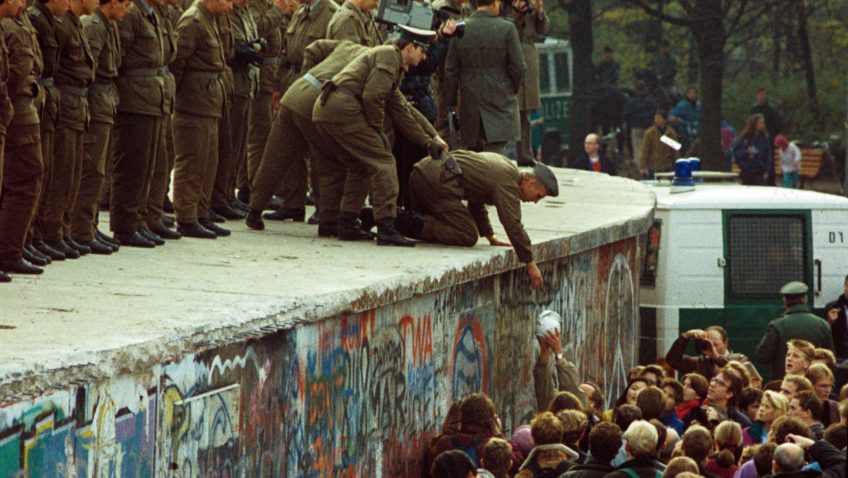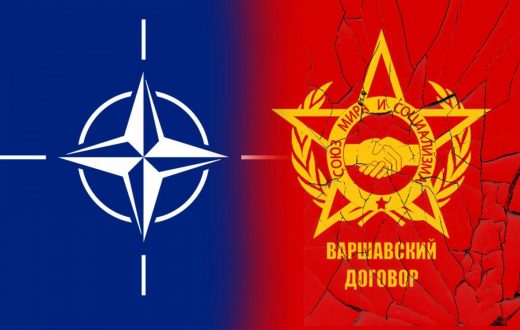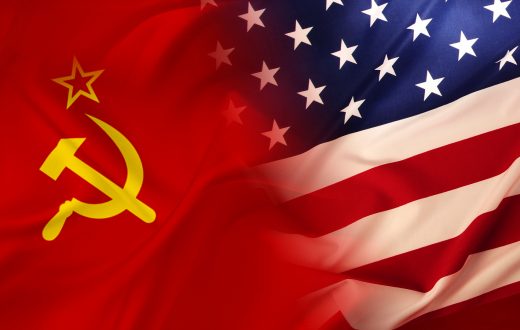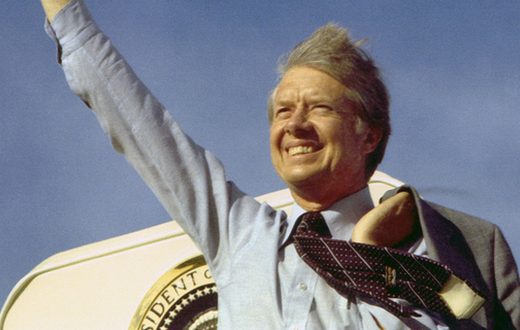The Fall of Berlin Wall on November 09, 1989 changed the face of Europe in particular and the world in General. The event has a great political ramification because this event marked the end of the cold war which divided the world (politically and ideologically) between the East and the West. The event is considered to be the beginning of the freedom or liberation of Central and Eastern Europe and former republics of the Soviet Union (USSR). The pivot role in the fall of the wall was played by Mikhail Gorbachev whose policies of “Perestroika” which means restructuring and “Glasnost” which means openness led to the Soviet Union’s disintegration and the collapse of Communism across Europe.
30 years on, the Fall of the Berlin Wall has changed the Europe extensively. Today, there are 28 member states of EU (Post Brexit 27). Among the EU members, 19 states have Euro as their currency and others are to follow except for Denmark and Sweden. This event played a vital in European Integration.
According to Professor Dr. Ludger Kuhnhardt, the Director of Center for European Integration Studies (ZEI) at University of Bonn, the formal consent between the four allied powers of the World War II had brought about the rapid German unification which in return expedited the path toward the European Monetary Union (EMU). Moreover, it also enabled the enlargement of the European Union by granting membership to Central and Eastern European states. In 2004, EU membership was granted to ten post-communist countries and two more were granted membership in 2007. However, Croatia became 28th member state of the European Union in 2013. Post-Brexit, EU will have 27 member states.
European Union website considers the Fall of Berlin Wall as, “major political upheaval”. Moreover, EU website mentions the decade after this event as, “A Europe without Frontiers.” Thus, the event of Fall of Berlin Wall proved to be a major political upheaval which paved the way for a Europe without Frontiers. Neighbouring countries came closer across the Europe as the result of collapse of communism. With four freedoms in 1993, the Single Market was completed with the freedom of movement of people, money, goods and services after the Treaty of Maastricht Treaty (1993).
The first decade of the twenty-first century was the Second Founding of the European Union (Kuhnhardt, 2010). During this decade, two major developments took place within the EU. Firstly, Euro became the currency for many European countries and many are yet to adopt Euro as their currency. Secondly, the Treaty of Lisbon was ratified which entered into force in 2009. The Treaty of Lisbon provided the EU with more efficient working methods along with modern institutions.
The second decade of the twenty-first century proved to be a challenging decade. The world was hit with global financial crisis. The issue of climate change became more challenging. The Arab Spring brought havoc across the Middle East and Europe faced a large influx of refugees. In 2016, two major political developments took place with the Brexit referendum in the EU and the election of Donald Trump as the 45th President of the United States of America. The world also saw the rise of nationalism and populism including countries within the EU.
Meanwhile, for Germany, the Fall of Berlin Wall has helped Germany to become an economic powerhouse of Europe by modernizing its economy and overcoming its internal divisions. Diplomatically, Germany has gained a strong voice not only within the EU but also world politics and the case in point is Germany’s role along with five permanent members of the United Nations Security Council and the EU in Joint Comprehensive Plan of Action, commonly known as Iran Nuclear Deal. While the UK has decided to leave the EU, Germany along with France is the driving force within the EU. German Power was enhanced by the German reunification and Germany has become a major European Power.
30 Years on, the impact of Fall of Berlin Wall can still be felt in the world politics in general and specifically in Europe. The event of late 1989 led world to a different direction. It paved the way for the European Integration, caused the collapse of communism and expedited the Soviet Union disintegration. Moreover, it gave rise to the theories of Francis Fukuyama’s, “The End of History” and Samuel P. Huntington’s, “The Clash of Civilization.” However, the event of September 11 and the resultant, “War on Terror” gave birth to new theories, assumptions and stereotypes. Politically, the nationalism and populism are in rise which was hard to predict after the Fall of the Berlin Wall and the consequent disintegration of the Soviet Union. Socially, the xenophobia and Islamophobia have become a threat to the globalisation. Economically, the world might face another recession in coming years. Implications of China’s rise as a superpower might give rise to a new world order which is impending at a rapid pace than expected.








